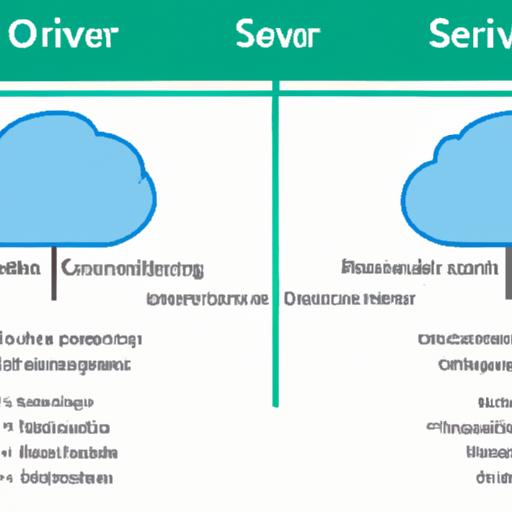
In today’s digital landscape, the concept of cloud storage has become a fundamental aspect of how we manage and store our data. But what exactly is cloud storage? Simply put, cloud storage refers to the practice of storing data on remote servers accessed through the internet, rather than storing it locally on physical hard drives or other storage devices.
The importance of cloud storage cannot be overstated in our modern world. With the exponential growth of data being generated daily, individuals and businesses alike require a reliable and scalable solution to store and access their information. Cloud storage provides a flexible and cost-effective way to manage data, offering convenience and accessibility that traditional storage methods often lack.
As we delve deeper into the realm of cloud storage, we uncover a world of possibilities that can transform the way we interact with data. From seamless collaboration to enhanced data security, cloud storage offers a myriad of benefits that cater to the evolving needs of today’s digital society. Join me on this journey as we explore the intricacies of cloud storage and unlock its true potential.
How Cloud Storage Works
Explanation of Data Storage on Remote Servers
In the realm of cloud storage, data is stored on remote servers maintained by third-party providers. This means that instead of saving your files on a physical device like a hard drive or USB, your data is securely stored on servers located in data centers around the world. These servers are connected to the internet, allowing users to access their data from any device with an internet connection.
Benefits of Storing Data in the Cloud
The shift towards cloud storage has brought about numerous benefits for individuals and businesses alike. One of the key advantages is the ability to access your data from anywhere at any time. Whether you’re at home, in the office, or on the go, cloud storage ensures that your files are always within reach. Additionally, cloud storage offers scalability, allowing users to easily expand their storage capacity as their data needs grow without the hassle of investing in new hardware.
Types of Cloud Storage
Public Cloud Storage
Public cloud storage is a type of cloud storage service provided by third-party vendors over the internet. It offers a cost-effective solution for individuals and businesses to store data on shared resources managed by the service provider. Public cloud storage is known for its scalability and accessibility, making it an attractive option for those seeking a flexible storage solution.
Private Cloud Storage
Private cloud storage, on the other hand, is dedicated to a single organization and is typically managed either on-premises or by a third-party service provider. This type of cloud storage offers enhanced security and control over data, making it ideal for businesses with strict compliance requirements or sensitive information that must be protected.
Hybrid Cloud Storage
Hybrid cloud storage combines elements of both public and private cloud storage, allowing organizations to leverage the benefits of both models. With hybrid cloud storage, businesses can store critical data on-premises for security reasons while utilizing the scalability and cost-effectiveness of public cloud storage for less sensitive information. This flexible approach to cloud storage enables organizations to tailor their storage solutions to meet their specific needs and requirements.
Security Concerns with Cloud Storage
Data Encryption
Data encryption is a pivotal aspect of ensuring the security and privacy of data stored in the cloud. By encrypting data before it is transmitted to remote servers, cloud storage providers can safeguard sensitive information from unauthorized access. Encryption algorithms scramble data into a format that can only be deciphered with the correct decryption key, adding an extra layer of protection against cyber threats and data breaches.
Compliance with Data Protection Regulations
In today’s digital landscape, data protection regulations play a crucial role in safeguarding user privacy and ensuring the ethical handling of personal information. Cloud storage providers must adhere to stringent data protection laws such as the General Data Protection Regulation (GDPR) to maintain compliance and protect user data. By implementing robust security measures and privacy policies, cloud storage services can build trust with users and demonstrate their commitment to upholding data protection standards.
Advantages of Cloud Storage
In the realm of data management, cloud storage stands out for its myriad of advantages that cater to the diverse needs of users. Let’s delve into the key benefits of cloud storage that make it a compelling choice for individuals and businesses alike.
Cost-effectiveness
One of the primary advantages of cloud storage is its cost-effectiveness. By eliminating the need for physical storage devices and maintenance costs associated with on-premises storage solutions, cloud storage offers a more economical option for storing large volumes of data. Users can choose from a variety of pricing plans based on their storage requirements, allowing for scalability and flexibility in managing costs.
Scalability
Scalability is another key advantage of cloud storage. With the ability to scale storage capacity up or down based on demand, users can adapt their storage needs in real-time without the constraints of physical storage limitations. This flexibility enables businesses to efficiently manage their data growth and optimize storage resources to meet changing requirements.
Accessibility from Anywhere
Cloud storage provides users with the convenience of accessing their data from anywhere with an internet connection. Whether working remotely, traveling, or collaborating with team members across different locations, cloud storage ensures seamless access to files and information. This accessibility enhances productivity and facilitates efficient collaboration, making cloud storage an indispensable tool in today’s interconnected world.


